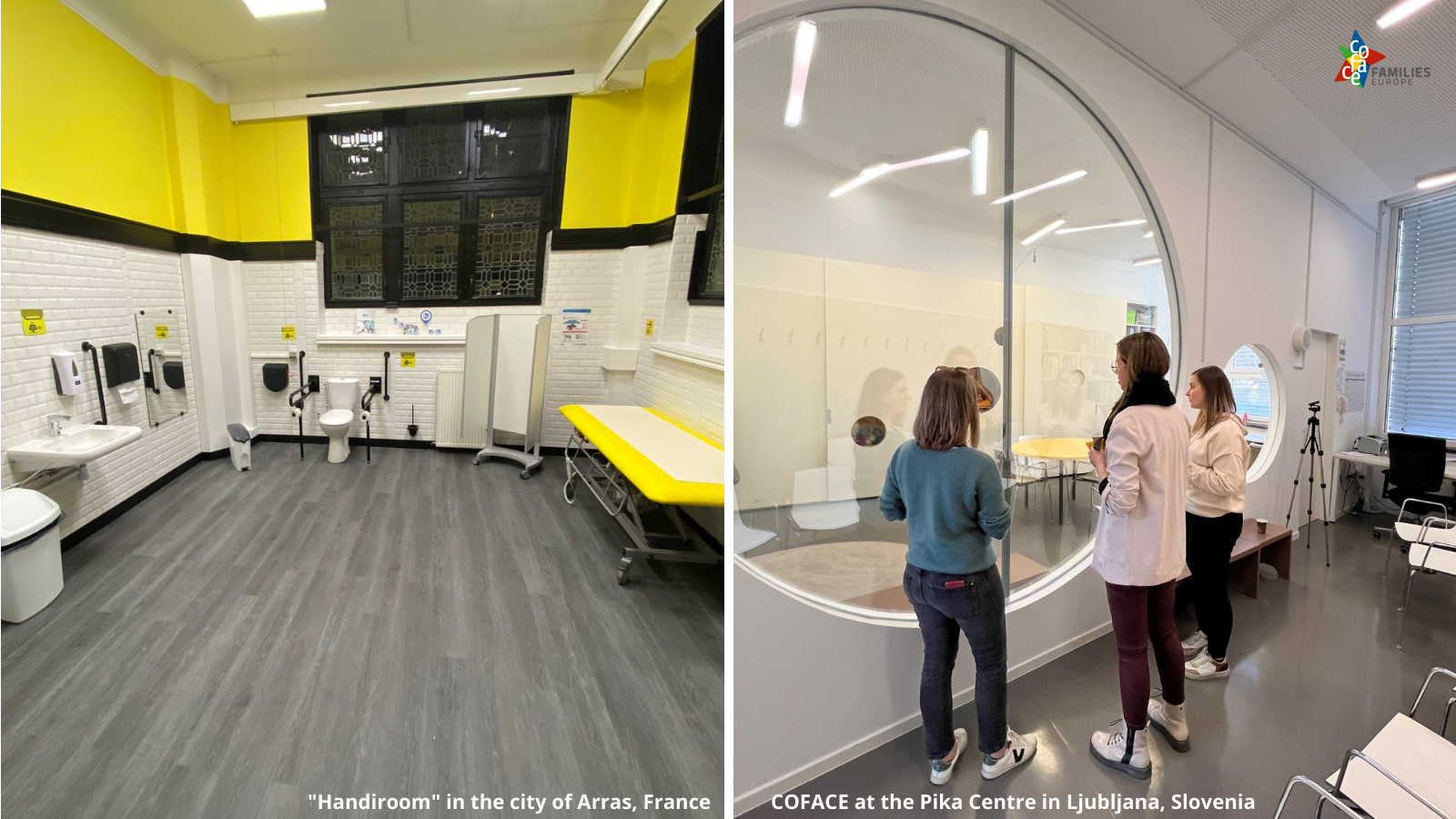In December 2021, COFACE Families Europe released the S.H.I.F.T. from word to actions: shedding the light on the S.H.I.F.T. towards meaningful inclusion in Europe, where we highlighted 45 practices for the inclusion of persons with disabilities aligned with the 45 actions developed in our S.H.I.F.T. guide.
Through the public survey we launched to collect practices, we have been amazed by the variety of initiatives that are already implementing the S.H.I.F.T. towards the meaningful inclusion of persons with disabilities and their families in Europe.
Over the last months, we have received news about a few practices that we are happy to share with you, hoping that they will inspire you as they have inspired us.
The city of Arras (France) has inaugurated their change room in the city centre. (S.H.I.F.T. report p.20)
The city of Arras in the north of France opened the first public changing room in France accessible to persons with disability France in late 2021. Changing rooms greatly improve the accessibility of public spaces for person with disabilities. They preserve dignity by giving privacy for persons who need assistance going to the facilities and for whom accessible toilets are not enough. It is a useful investment for any city moving towards inclusivity. The changing room in Arras has already brought a group of tourists with multiple disabilities who came to tour the city!
The changing room in Arras is the direct result of the advocacy action of Sonia, the mother of Liam who presented the project to the city for participatory financing and won the bid. It is a great and inspiring example of family carer advocacy and it already had positive ripple effects.
Since then, the city of Nancy has also inaugurated their changing room and following the example of Sonia in Arras, a request has been put forward by a mother for the city of Lille to finance their own changing rooms.
The Pika Centre in Ljubljana. (S.H.I.F.T. report p.35)
With the COVID Restrictions lowering, COFACE Families Europe had the opportunity to organise a meeting with members organisation safely in Ljubljana. It was the occasion to meet up with the great team of the Pika Centre and to learn a bit more about their program to support children with disabilities, their families, and the professionals working with them. Through a wide range of services, including training courses for professionals from the health and education sectors (on a wide range of topics including Early Childhood Intervention), seminars and workshops, phone and email counseling to families, teachers, and other professionals working with children with special needs, they have been providing support since 2013 to move towards inclusion. The team also contributes to the field of research and to the diffusion of information through the publication of books and leaflets for various actors. The centre is the result of the advocacy of Branka D. Jurišić, who successfully advocated the city for the necessity of such a resource centre, she was joined in her effort by Matej Rovšek who is now the director of the centre.
Thank you to the entire Pika team for your warm welcome!
Both examples prove that when motivation, and belief that inclusion is the way forward, meet responsive public authorities who are willing to learn and to listen to persons with disabilities and their families, great results can be achieved!





